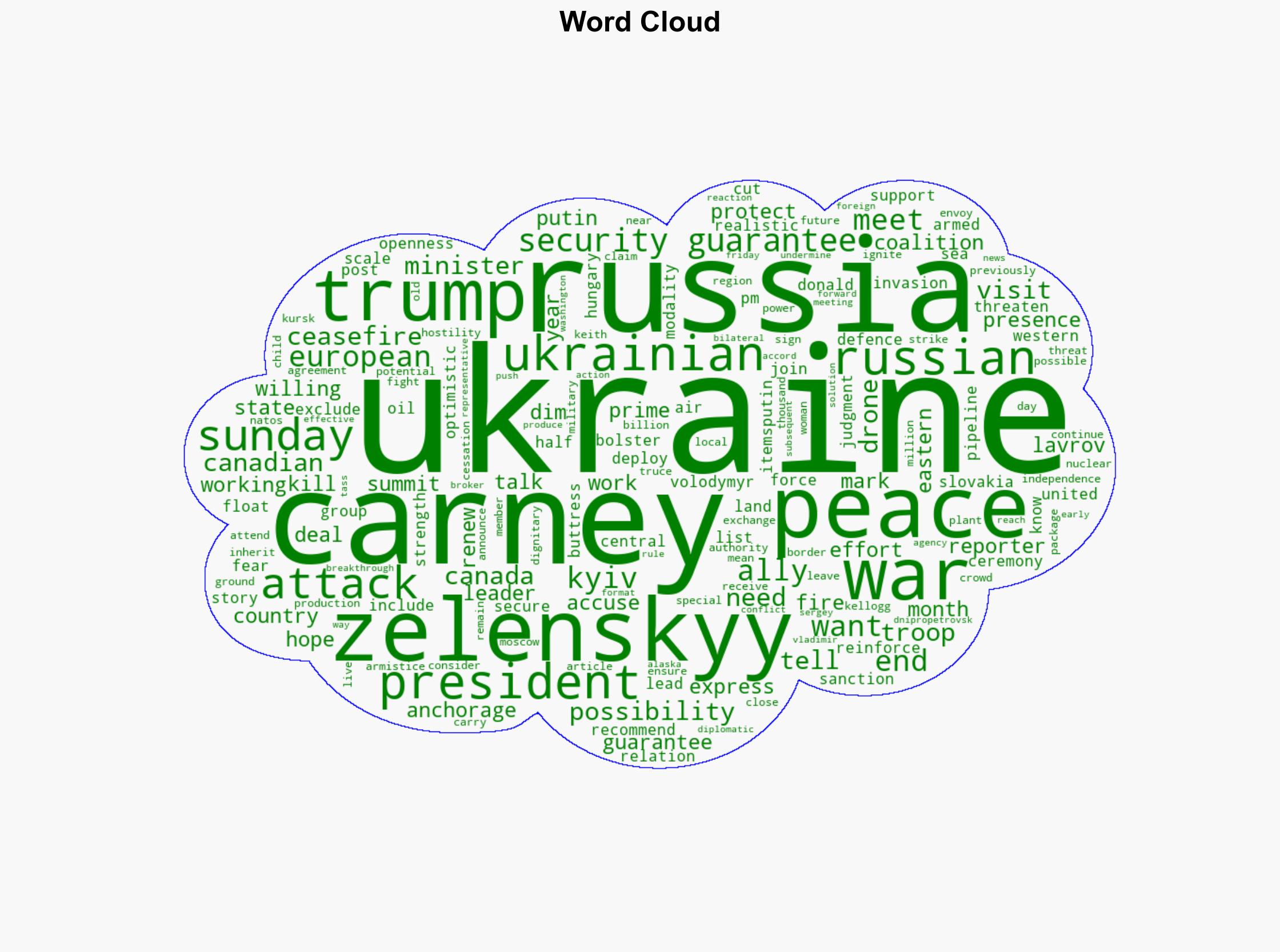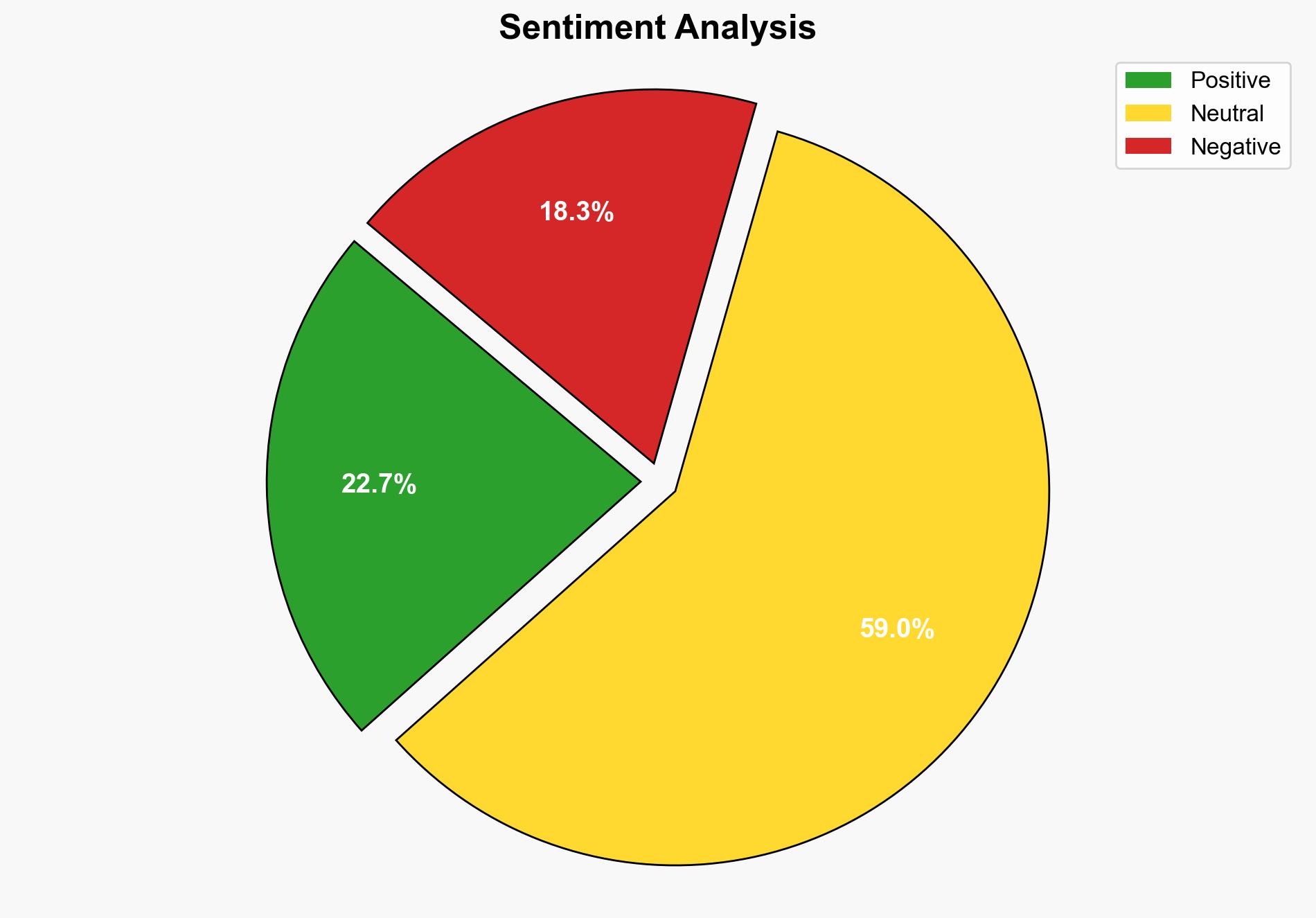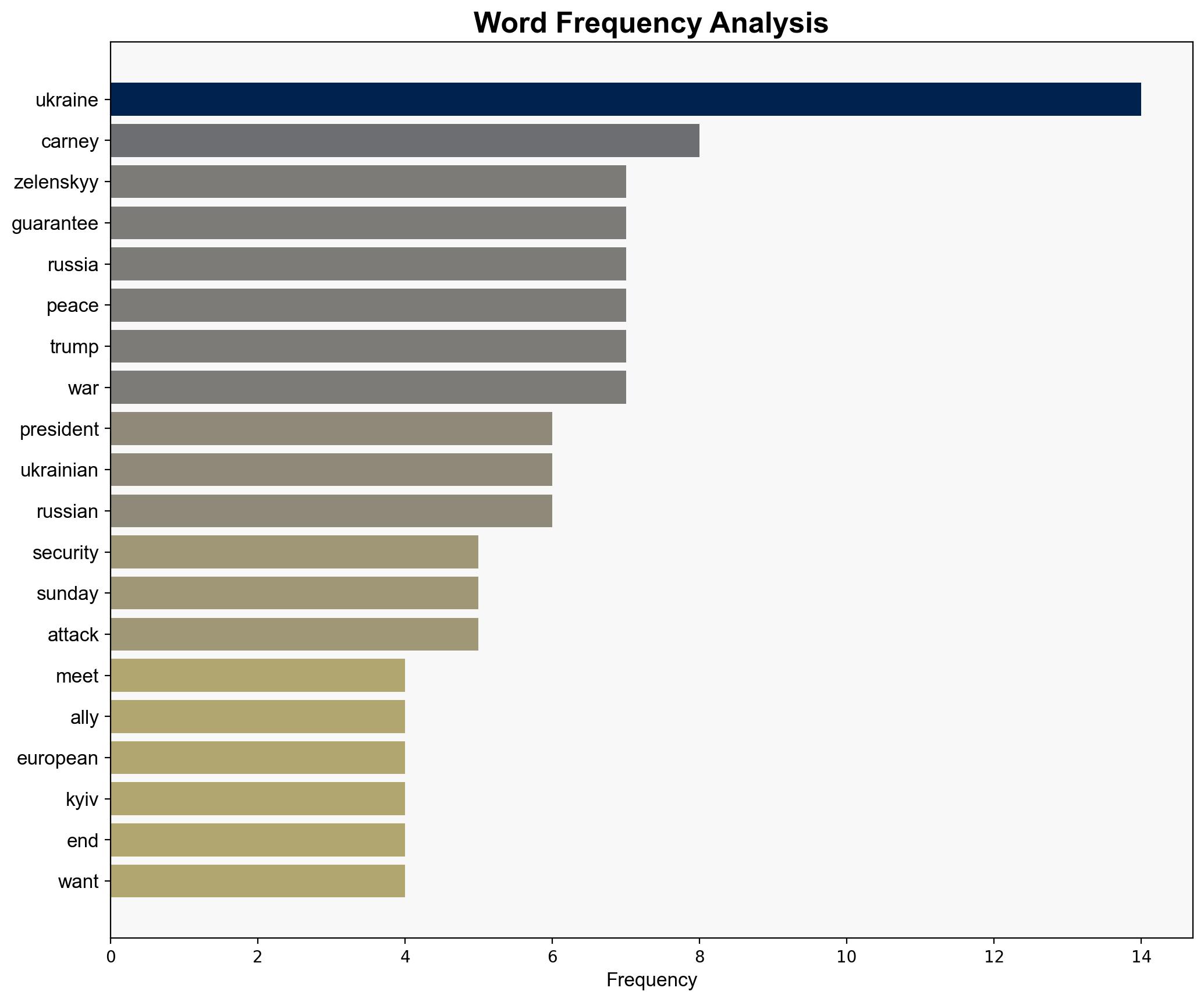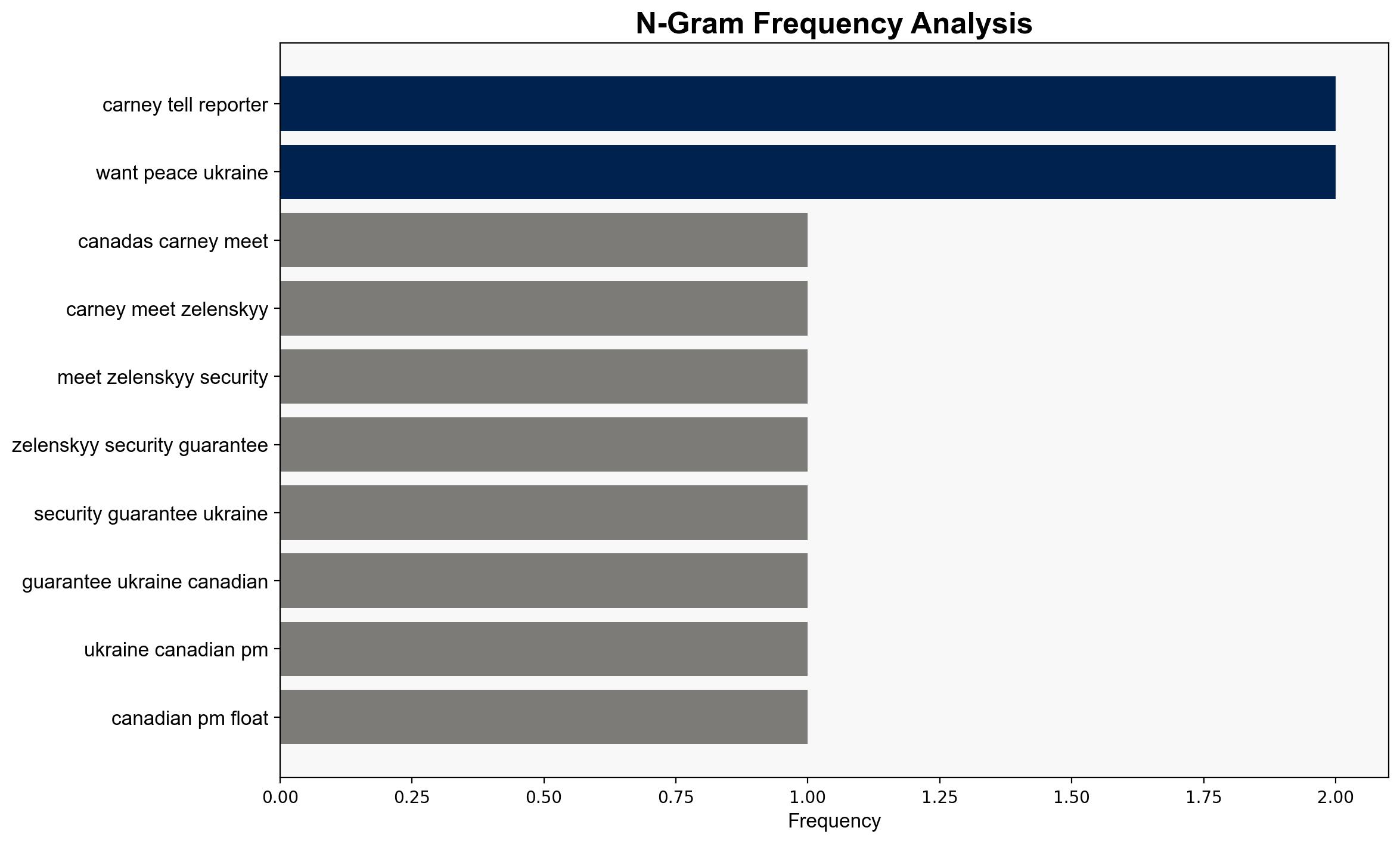Canadas Carney meets Zelenskyy backs security guarantees for Ukraine – Al Jazeera English
Published on: 2025-08-24
Intelligence Report: Canadas Carney meets Zelenskyy backs security guarantees for Ukraine – Al Jazeera English
1. BLUF (Bottom Line Up Front)
The most supported hypothesis is that Canada, under Mark Carney’s leadership, is actively seeking to bolster Ukraine’s defense capabilities through security guarantees and potential troop deployments, aligning with a broader Western strategy to deter Russian aggression. Confidence level: Moderate. Recommended action: Strengthen diplomatic engagements with European and North American allies to ensure cohesive support for Ukraine and explore non-military avenues for conflict resolution.
2. Competing Hypotheses
1. **Hypothesis A**: Canada is committed to providing security guarantees to Ukraine, potentially including troop deployments, as part of a coordinated effort with Western allies to deter Russian aggression.
2. **Hypothesis B**: Canada’s support for Ukraine is primarily symbolic, aimed at maintaining diplomatic relations and public support, with limited intention of actual military involvement.
Using the Analysis of Competing Hypotheses (ACH) 2.0, Hypothesis A is better supported by the explicit mention of troop deployment possibilities and Carney’s active engagement with Zelenskyy. Hypothesis B is weakened by the detailed discussions on security guarantees and the presence of high-level meetings.
3. Key Assumptions and Red Flags
– **Assumptions**: It is assumed that Canada has the political will and military capacity to deploy troops if necessary. Another assumption is that Western allies are unified in their approach to Ukraine.
– **Red Flags**: The possibility of internal dissent within Canada or among allies regarding military involvement. The lack of concrete details on troop deployment raises questions about the feasibility of such actions.
– **Cognitive Bias**: Confirmation bias may lead analysts to overestimate Canada’s military commitment based on diplomatic rhetoric.
4. Implications and Strategic Risks
– **Geopolitical**: Increased Western military presence in Eastern Europe could escalate tensions with Russia, potentially leading to a broader conflict.
– **Economic**: Prolonged conflict could disrupt regional economies and global energy markets, particularly if Russian energy supplies are affected.
– **Cyber**: Heightened tensions may lead to increased cyberattacks from state and non-state actors targeting critical infrastructure.
– **Psychological**: Continued conflict and military posturing may erode public support for government policies in both Western and Eastern Europe.
5. Recommendations and Outlook
- Enhance diplomatic efforts to unify Western allies on a cohesive strategy for Ukraine, emphasizing non-military solutions.
- Prepare contingency plans for potential Russian retaliatory actions, including cyber and economic responses.
- Scenario Projections:
- Best Case: Diplomatic negotiations lead to a ceasefire and eventual peace agreement.
- Worst Case: Escalation into a broader regional conflict involving NATO forces.
- Most Likely: Continued stalemate with intermittent diplomatic engagements and localized military skirmishes.
6. Key Individuals and Entities
– Mark Carney
– Volodymyr Zelenskyy
– Donald Trump
– Sergey Lavrov
7. Thematic Tags
national security threats, geopolitical strategy, military alliances, Eastern Europe stability





